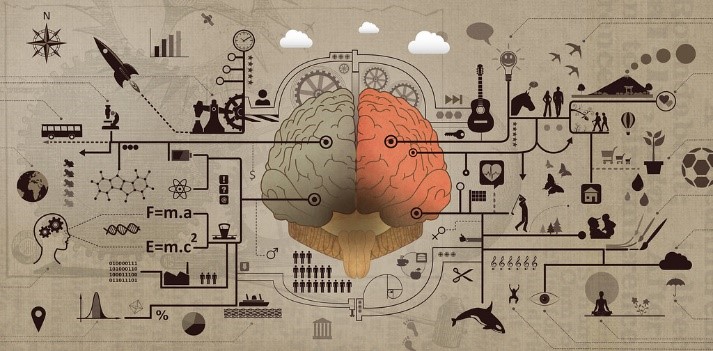The Takeaway
- Studies show that insomnia is a risk factor for depression, poorer concentration, and memory problems.
- Some evidence also suggests that insomnia is related to heart disease and earlier death3.
Depression
“Depressed" by Sander van der Wel a |
Many individuals struggle with depression. It impacts one’s ability to think, feel, and handle daily activities well. Depression often includes sad feelings and a loss of enjoyment in life events. Studies have shown a close relationship between the regulation of sleep and that of mood.1 Chronic insomnia is a risk factor for the development of depression; insomnia can occur as a result of depression. Watch Dr. Suzanne Bertisch describe the close relationship between insomnia and depression. |
Cognitive Function
"Learning and Education - Brain Functions Development Concept" by imagenslivres.com b |
It is no surprise that insomnia can decrease the ability to think clearly. Studies have shown that individuals with insomnia show declines in cognitive performance with short-term memory, attention, and some more complex brain functions like the ability to speak clearly.2 |
Cardiovascular Health & Lifespan
"Heart Health - Stethoscope and Wooden Heart" by formulatehealth c |
Although the link between insomnia and depression is more pronounced, studies suggest that insomnia can be associated with an increased risk of heart disease and a shortened lifespan.3 Emerging research in this area suggests that insomnia can put the body in a proinflammatory state. |
References
- Lustberg L, Reynolds III CF. Depression and insomnia: questions of cause and effect. Sleep Med Rev. 2000; 4 (3): 253-262.
- Fortier-Brochu É, et al. Insomnia and daytime cognitive performance: a meta-analysis. Sleep Med Rev. 2012; 16 (1): 83-94.
- Javaheri S, Redline S. Insomnia and risk of cardiovascular disease. Chest 2017; 152 (2): 435-444.


